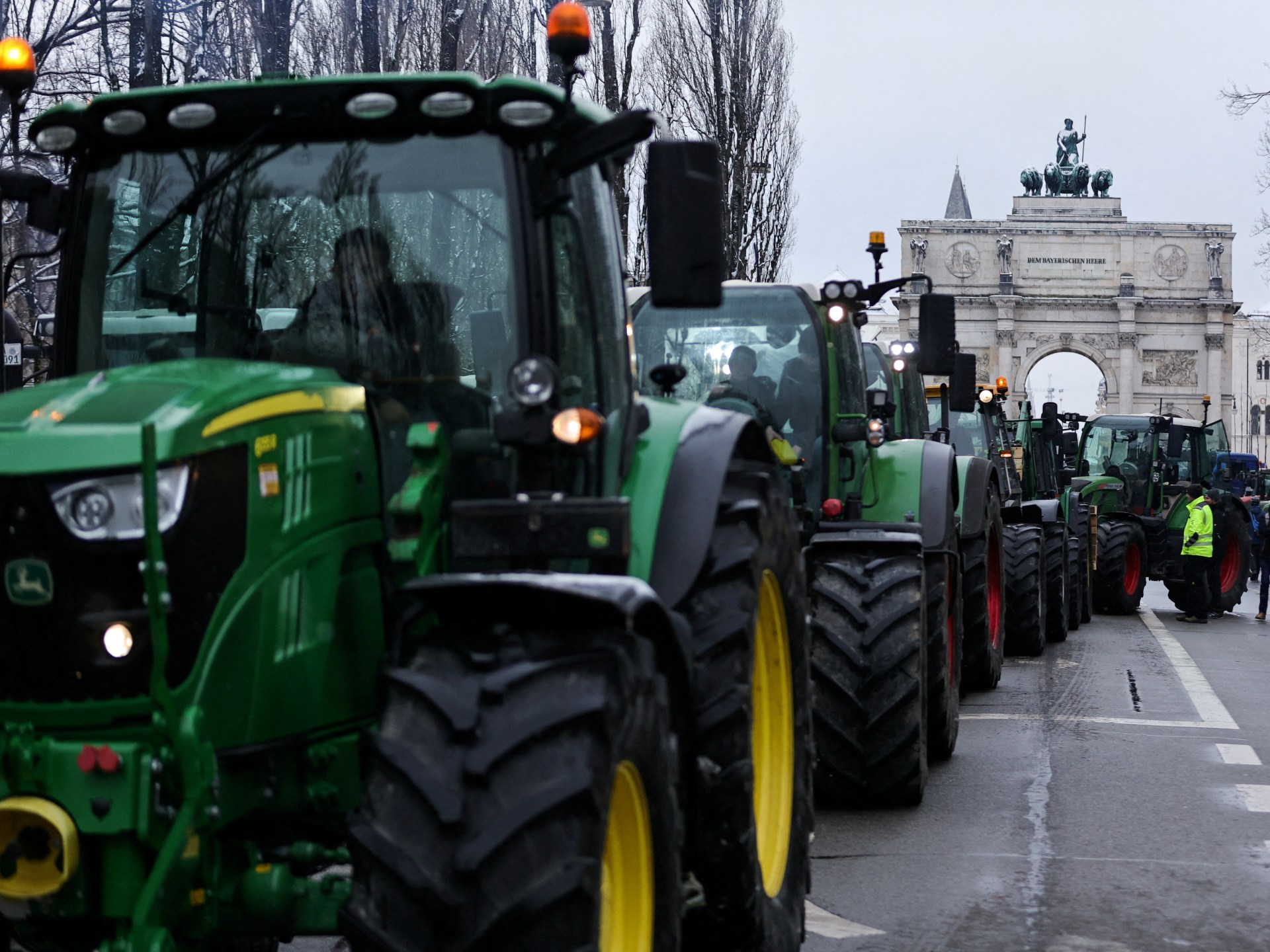**The Impact of German Farmers’ Protests Against Subsidy Cuts**
In a dramatic show of dissent, farmers in Germany are taking to the streets, using tractors to block roads and highways in response to plans to phase out agricultural subsidies. These protests have initiated a wave of industrial action and drawn attention to the far-reaching implications of subsidy cuts, sparking concerns about potential co-option by fringe groups.
**A Wave of Protests**
In response to the proposed elimination of agricultural subsidies, farmers have orchestrated a series of protests, effectively disrupting normalcy across Germany. Convoys of tractors and trucks have strategically positioned themselves on the roads, brandishing banners and posters as manifestations of their discontent. The protest in Berlin, marked by the blaring horns of numerous tractors and the consequent blockage of the main avenue leading to the Brandenburg Gate, has come to symbolize the commencement of a week-long string of actions.
**Widespread Disruption**
The impact of these protests has resonated nationwide, with road blockades extending to multiple locations, including border crossings with France. The severity of this disruption is underscored by the fact that workers from various sectors, including transportation and education, have resorted to industrial action in solidarity with the farmers.
**Economic Struggles and Social Unrest**
Amidst Germany’s economic challenges, characterized by sluggish growth and significant price escalations, the unrest has further intensified. This reflects a broader societal apprehension, as evidenced by the impending rail workers’ strike and the intense wage negotiations.
**Concerns of Co-option and Discord**
Amidst the escalating protests, Vice Chancellor and Economy Minister Robert Habeck has issued a warning regarding the potential co-option of the protests by fringe groups. Expressing concern over the proliferation of extremist sentiments and nationalist symbols, there is a growing fear of the protests being exploited for subversive purposes.
**The Farmers’ Plight**
Central to the protests is the farmers’ vehement opposition to government plans to abolish tax breaks, totaling approximately 900 million euros annually. This financial blow, if implemented, threatens to catalyze the closure of numerous farms, significantly impacting the livelihoods of those within the agricultural sector.
**Political and Public Responses**
The farmers’ cause has garnered support from opposition conservatives, as well as within Chancellor Olaf Scholz’s Social Democratic Party. Furthermore, the resilience of the farmers has prompted a partial reversal of the subsidy cuts by the government, signaling an acknowledgment of the gravity of the situation. However, this concession has not assuaged the farmers, who argue that it falls short of addressing their fundamental concerns.
**The Public Opinion**
A notable aspect of the protests is the overwhelming support from the public, as highlighted by a poll conducted by the public broadcaster NTV. The findings revealed that 91 percent of respondents expressed solidarity with the farmers, deeming their actions justified in the face of the subsidy cuts.
**Conclusion**
The protests staged by German farmers against subsidy cuts have significantly reverberated across the nation, crystallizing a potent display of dissent and resilience. As the protests continue to unfold, they serve as a stark reminder of the intricate interplay between economic policies, societal unrest, and political responsiveness. The outcome of these protests promises to shape not only the trajectory of agricultural subsidies but also the broader socio-political landscape of Germany.


